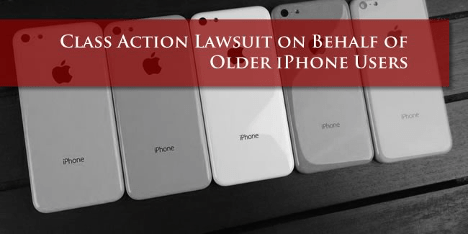By: Hayden Gramolini
Apple customers long suspected that it was not a coincidence that when a new iPhone model was released, the batteries on the older models seemingly could not hold a charge anymore. While many played it off as a wild conspiracy theory from customers that did not want to shell out money for the new iPhones, it turned out to not be as crazy as it sounded.
On December 20, 2018, Apple issued an apology essentially confirming the rumors that the company was intentionally slowing their older models down through software updates. Within a few weeks, dozens of lawsuits were filed against the tech giant in addition to investigations performed by the SEC and Justice Department for potential securities violations. A variety of claims were filed but they were eventually consolidated into a class-action suit in which the Northern District of California upheld claims for trespass to chattels as well as violations of both California and federal fraud statutes.
Particularly, the federal fraud claim was under the Computer Fraud and Abuse Act (hereinafter “CFAA”) which forbids unauthorized access of a computer, or in this situation a cell phone. In order to state a claim under the CFAA, a plaintiff must successfully allege: (1) unauthorized access of a computer or access in excess of authorization; (2) with the intent to defraud, and (3) the defendant obtained something of value. The case eventually settled on February 28, 2020, for anywhere from $310 million to $500 million. The ambiguity on the final dollar amount for the settlement is determined by the number of customers that made a claim for their phone. Potential plaintiffs had until October 6, 2020, to file a claim to receive up to $25 in compensation for the company’s wrongdoings.
While Apple settled for a number of reasons, one reason was likely that the claim under the CFAA was meritorious. As to the first element, using software to secretly slow down phones seems like it would certainly be in excess of the authority given by consumers for routine updates. Apple clearly did this intentionally as there is no strong argument that it was done by mistake so the second element of intent to defraud is also likely met. Finally, by inducing customers to buy newer models from the poor performance of the batteries on the former models, Apple clearly obtained something in value in what would be otherwise unearned profits. Had the suit gone to trial, the plaintiffs would likely have succeeded and simultaneously furthered a public relations nightmare for a company like Apple.
Hopefully, the large amount of publicity, in this case, helps consumers stay alert to their legal rights in the future. The only way that massive corporations that push the boundaries of privacy law, like Apple, will learn anything from these outcomes is if impacted citizens take the time to make their claims. Apple’s actions clearly indicate that the company’s main concern is its bottom line. Customers need to utilize their power in numbers in these situations because when that settlement is closer to $500 million than $300 million, Apple will think twice in the future.
This should be a warning shot to major tech companies that have the capability to perform this large-scale fraudulent activity. In addition to the legal ramifications, it is incredibly disrespectful to the consumer that a company would destroy its product just to trick a customer into buying a newer one. Hopefully, this type of backend damage does not turn into a pattern in the tech marketplace.
Finally, the outcome of this settlement should make consumers conscious of computer fraud. Often, fraud is thought of as lying for profit in a contract negotiation or intentional wrongdoing in the financial sector but it is clear that it can impact anyone. Apple intentionally slowing down its batteries is a prime example of where fraud can fit into the world of privacy law. In the ever-changing tech industry, everyday people need to be cognizant of their security rights and properly challenge the companies bold enough to breach them.
Student Bio: Hayden Gramolini is a third-year law student at Suffolk University Law School and a staff member for the Journal of High Technology Law. He attended Quinnipiac University for his undergraduate degree where he majored in Legal Studies and minored in Sports Studies. He has a strong interest in practicing In-House in the future and recently declared for a business law concentration.
Disclaimer: The views expressed in this blog are the views of the author alone and do not represent the views of JHTL or Suffolk University Law School.

